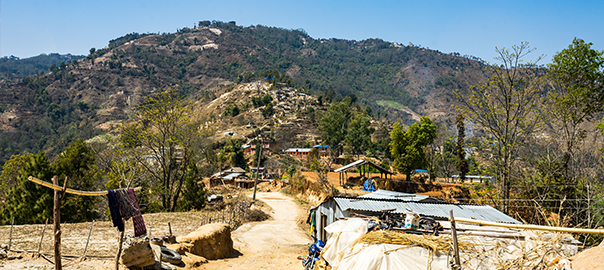I grew up in a missions-minded church where we talked about “unreached people groups” about as often as we recited John 3:16. So, you know, A LOT. Just in case this doesn’t come up much in your church, dear Reader, I’ll fill you in: A people group is a tribe or minority group with a distinct ethnicity and/or language. Unreached officially means there are less than 5% “Christian Adherents” within that group (people groups with less than .1% Christians are referred to as ‘Frontier’ or ‘Unengaged’). According to Joshua Project, there are more than 7,000 unreached people groups with a total population of…really read this…
3 billion people.
Our hearts should break for 3 billion people who have never had the opportunity to know that their Creator is a Father who loves them and that, through Jesus, He is reconciling everything—not only our sinful souls, but every relationship, every injustice, every trauma and hardship.
To be clear, Reconciled World isn’t focused on preaching the gospel to these 3 billion people. Our calling is primarily discipleship. We long to see those who are Christians learning to bring every area of their lives under the lordship of Jesus and to love their neighbors well. Yet, as we do this, God has allowed us to equip those who are well-suited to testify among the unreached—those closest to them.
The students at the Wholistic Development Center (WDC) come from impoverished, rural areas. Some come from unreached people groups. In fact, the country where WDC is located has 112 unreached people groups representing 85% of the population (according to Joshua Project). God is using WDC to share the gospel with and disciple young people who come to the city. As those young people return to their villages to visit or to live, their lives become a witness to their family and friends.
In another country (this one home to 67 unreached people groups, making up more than half the population), several of our TCT partner churches told us they had been sharing the gospel among those who had never heard of God. We were confused, because we had only been teaching them about showing God’s love through actions. They explained, “God says to love our enemies. Well, we have always been enemies with that tribe, so we decided to show them love.” Their loving actions—things like improving roads with hand tools, helping bring in the harvest of those who were sick, and repairing houses for widows—toward those who expected only hatred from them created great openness to the gospel. Twelve churches sprang up among unengaged people groups.
I believe these stories are a glimpse of how much God loves and longs for those who have never heard the gospel. He seeks them out. He sends them witnesses. He gives them openness to the good news.
Here was Jesus’ response to the unreached people of His time on earth (which, until Pentecost, was everyone, right?):
When He saw the crowds, He had compassion on them, because they were harassed and helpless, like sheep without a shepherd. Then He said to His disciples, “The harvest is plentiful but the workers are few. Ask the Lord of the harvest, therefore, to send out workers into His harvest field” (Matthew 9:36-38).
Let’s have Jesus’ same heart of compassion and obey His command to pray for those who have no one to show them the way to Life. Please join us this month in praying for unreached people groups.
- Pray that God would prepare hearts and minds to hear the gospel, that even by observing the world around them, they would sense His existence (see Psalm 19:1-2, Romans 1:20).
- Pray that the Holy Spirit would prompt people to serve, love, and teach truth to unreached people groups. Pray especially that their neighbors and enemies would reach out to them in love.
- Pray for those who are working amidst unreached people groups to have power, wisdom, and inspiration from God. Pray especially that Bible translations would be accurate and easy to understand.
- Pray that people would have the opportunity to understand the whole gospel—from creation to salvation to restoration. Pray that they would not only repent and believe, attend church, pray, and read their Bibles, but that the Christian message would impact every area of life…the way they work, steward resources, parent, and care for others.



Leave A Comment